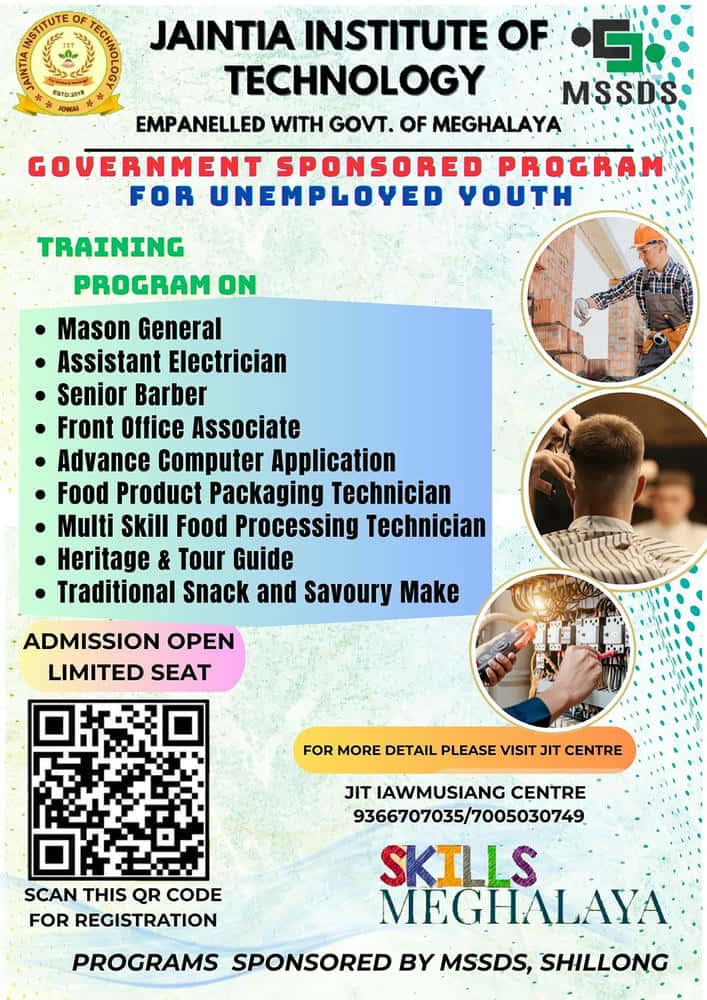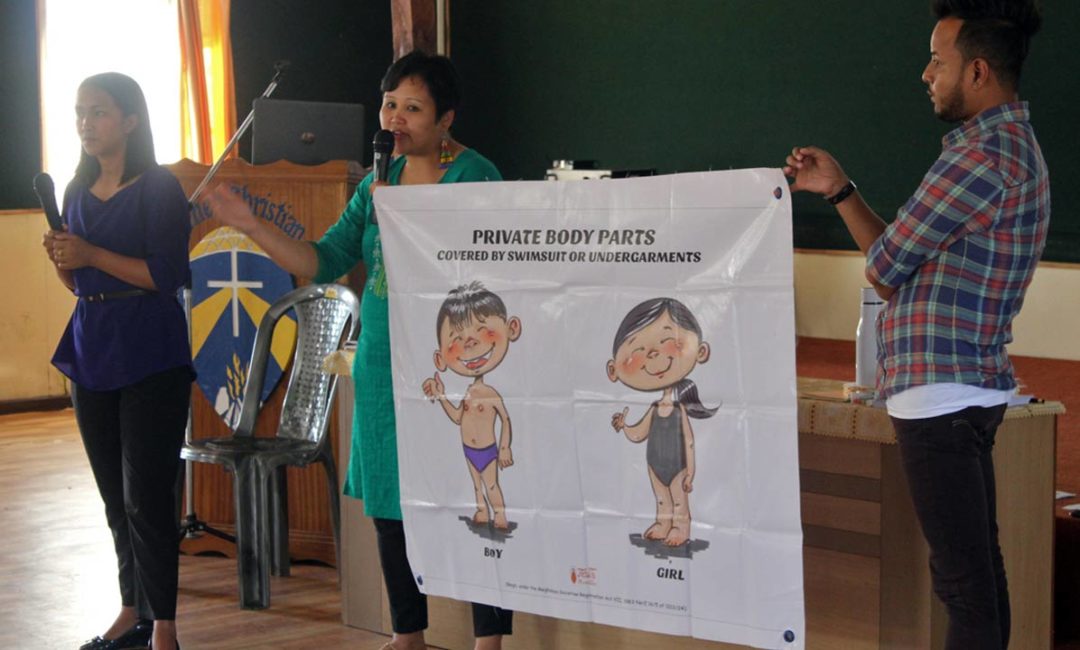Needs to teach children on unsafe touch

SHILLONG: MLCU Academics Office in collaboration with Faith Foundation conducted a workshop on “Child Protection and Safety” on the 1st and 2nd of July 2019 in the University’s premises. The workshop was attended by 35 members of the University’s faculty. The resource persons of this workshop were Faith Foundation members Shannon Massar and Peacefully Marsharing.
Throughout the two days, there were presentations and discussions on the various topics and elements encompassing child rights the fundamental ones being the rights to survival, protection, development and participation. It is emphasised that, in this context, a child should always be prioritised and anything that does not help a child should be discarded.

One of the topics that was brought up and discussed in the seminar was incestful sexual assault on a child by a family member or an adult that a child trusts. These kind of cases most often go unreported because a child would often fear that he or she will not be believed when he or she reports such incidents. Besides that, the family of the child would also attempt to hush up the matter because of the shame and stigma that such an incident inevitably attracts. Hence, it is important to instruct children about the need to freely communicate and share if they ever come across behaviour that makes them uncomfortable. It is equally important for adults to create a safe and amiable atmosphere for a child wherein he or she can effortlessly come up and share about his or her experiences.
The participants were also enlightened about the various kinds of sexual abuses that children most often encounter. They were also made aware of the Personal Safety Education (PSE) that children are taught to identify unwarranted behaviours and defend themselves against them. In these kinds of training the children are also sensitised about their bodies and the way to distinguish safe from unsafe touches.

There was also a briefing on the various kinds of disclosures that a child resorts to when informing about an incident that occurred to them, some of them being direct, indirect, accidental, disguised or strings attached disclosures. The participants were also briefed on the POCSO Act and its various provisions.
All these discussions were accompanied by video presentations, group discussions, demonstrations and activities.

Leave a Reply